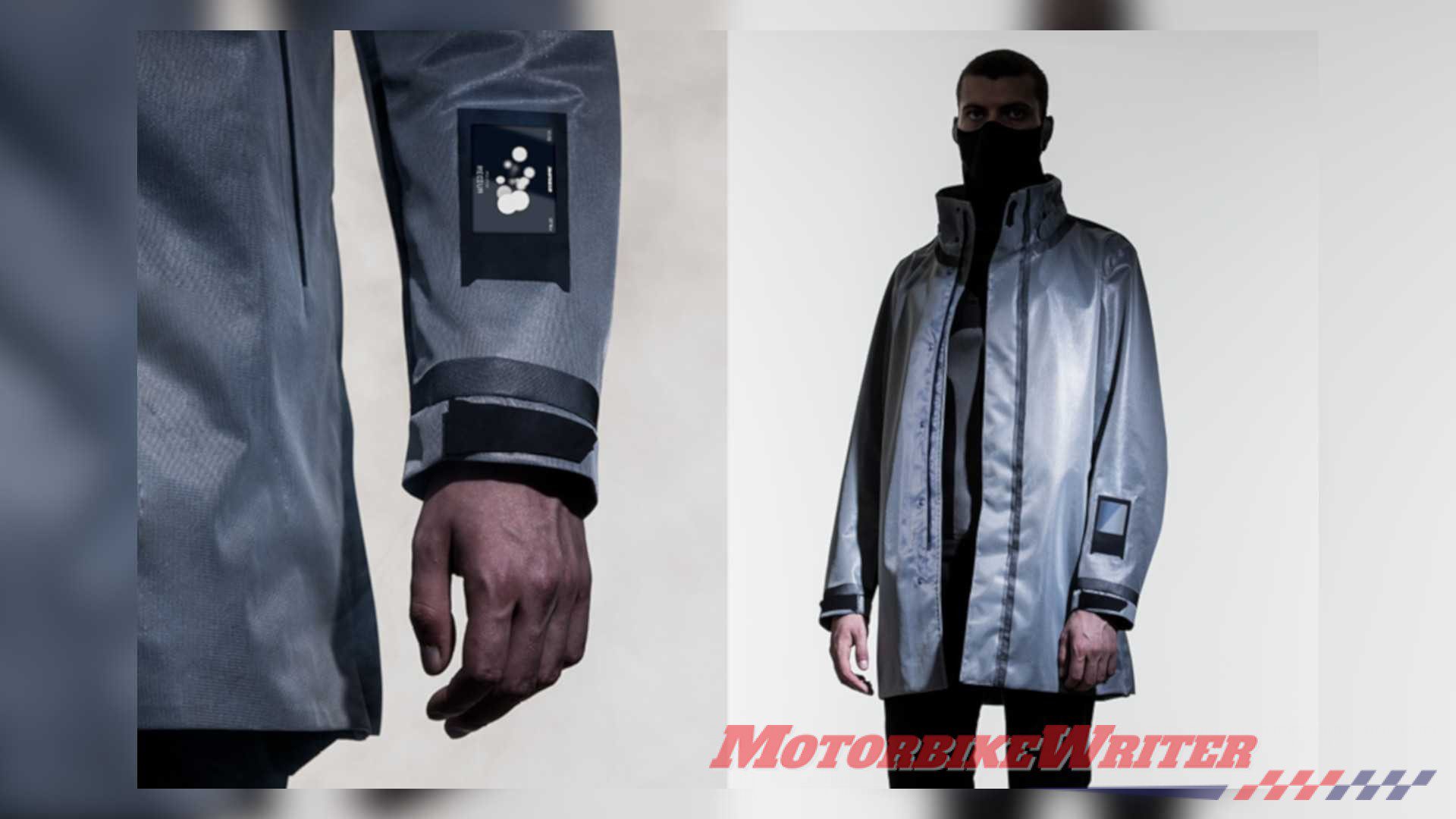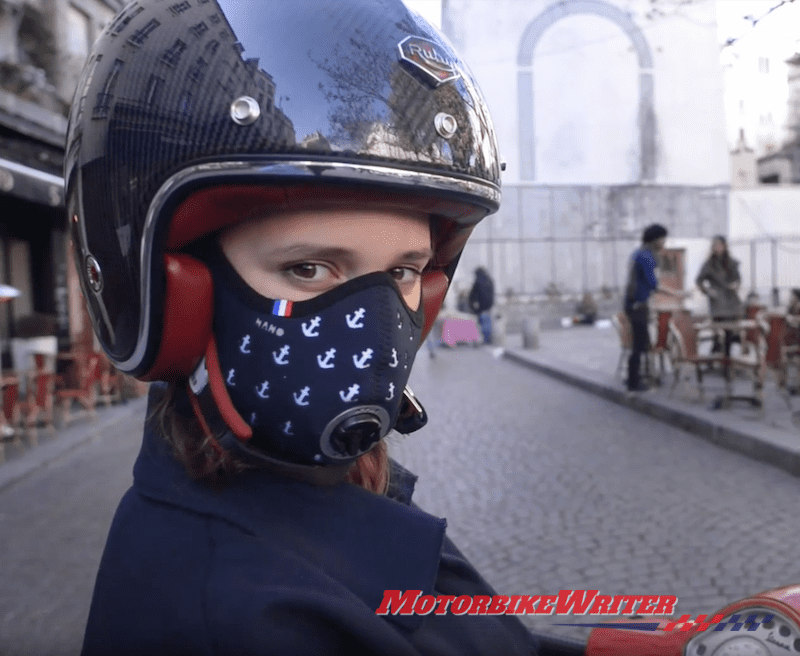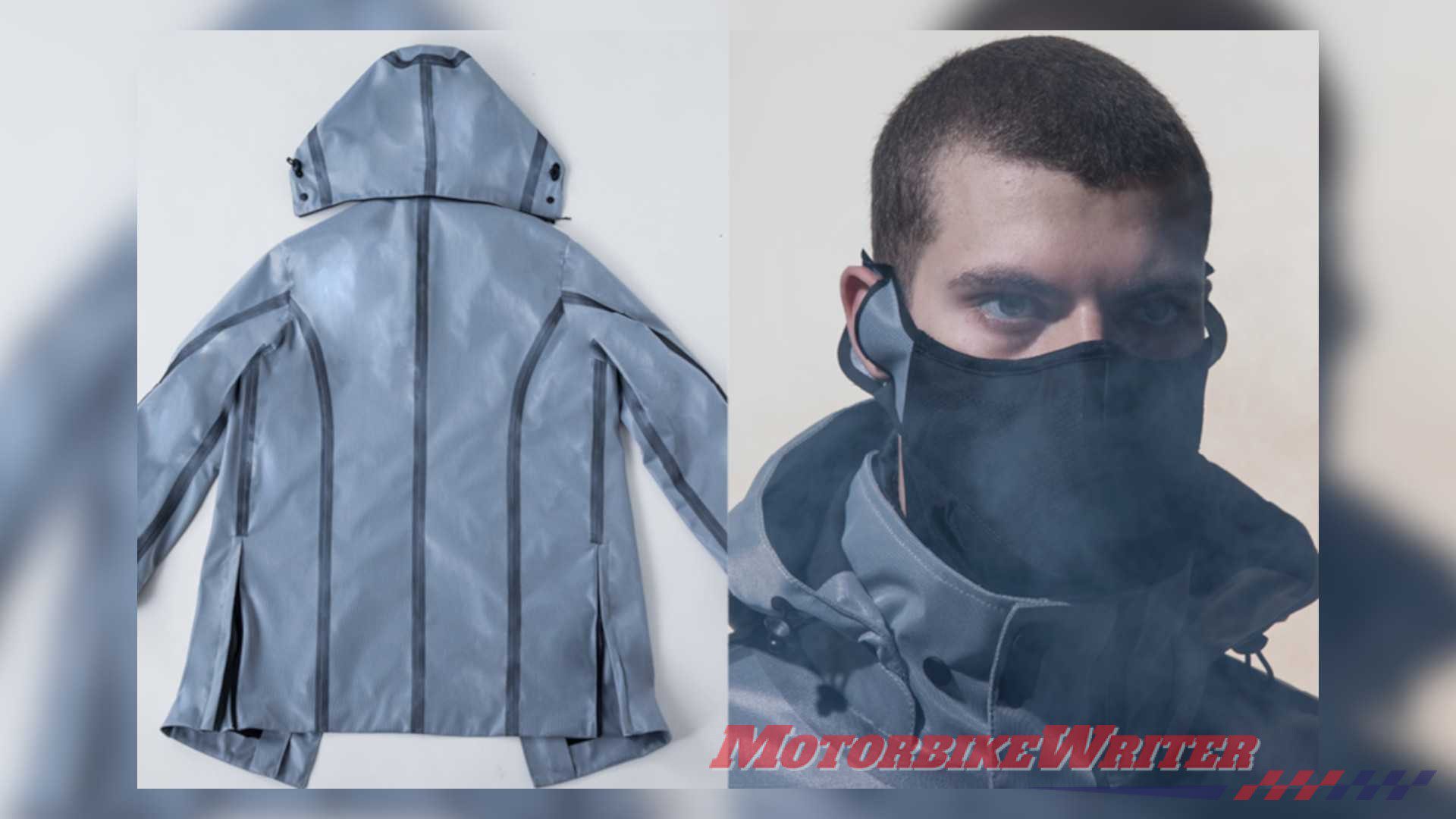Italian motorcycle rider protection company SPIDI is working on a smog-proof jacket and mask that could protect riders from the current bushfire smoke spread across NSW and Queensland.
The Spidi Mission Beta is currently just a concept.
However, it seems to be an advancement on their Beta Pro which has a special waterproof membrane and face mask.
How it works
The Mission Beta mask features an air pollution sensor that provides the rider with visual warnings on air pollution via an OLED display on the jacket’s left arm or clutch side. It also vibrates to warn of rising levels.

When the level rises above low, your magic consider using the mask. If it reaches “high” better gear that mask on now!
The sensor system turns on when the jacket is moved and off when it is still so you don’t waste battery.
The mask is designed to work with any motorcycle helmet.
Smoke dangers
Many riders are resorting to wearing face masks or neck socks to protect them from the current bushfire smoke.
Certainly they filter the big carbon particles which can worsen asthma and other respiratory conditions or penetra, cause coughing and shortness of breath and irritate your eyes, nose and throat.
However, they are useless against the finer particles that can penetrate deep into your lungs, causing inflammation that can exacerbate existing health conditions such as asthma, emphysema and heart problems.
In 2017, French company R-PUR developed a face mask to protect against these fine pollutants which are present in urban commuting even when there aren’t bushfires.

Spidi says riders are exposed to air pollution around 100 times more than drivers and 10 times more than pedestrians or cyclists.
It’s worth noting that air pollution is the fourth biggest cause of death in the world with 5.5m fatalities a year.
It also apparently can take more than two years off your life expectancy if you are exposed to it on a daily basis.


